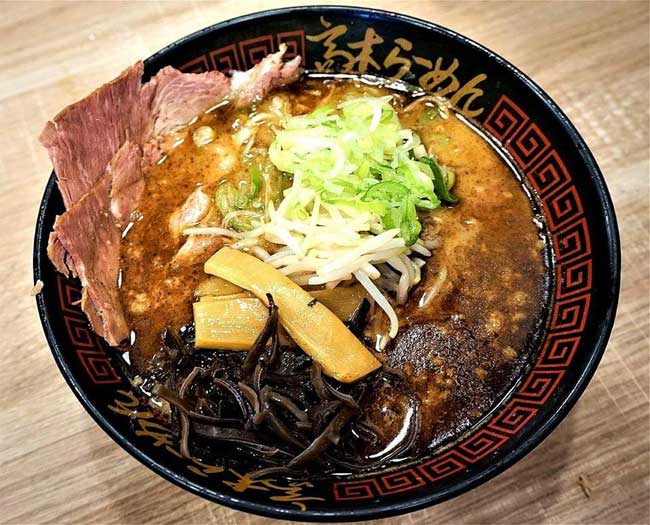Nishida Shoun Transport Company, based in Fukuoka Prefecture (Southwest Japan), has developed a unique method for creating biofuel from ramen broth.
Tonkotsu ramen is a signature noodle dish in Japan, featuring a broth made from simmered pork bones. Nishida Shoun has extracted the pork fat from the leftover tonkotsu ramen broth after meals and mixed it with fuel made from waste cooking oil.

Tonkotsu ramen is a signature noodle dish in Japan. (Photo: Facebook/Takagi Ramen).
Currently, Nishida Shoun uses this biodiesel to operate a few of its 170 trucks, with a goal to utilize 100% of this clean fuel for all vehicles starting in September.
Biodiesel is considered an effective alternative to diesel fuel and helps protect the environment by reducing greenhouse gas emissions.
The president of Nishida Shoun, Masumi Nishida, came up with the idea of using tonkotsu ramen broth to produce fuel in 2013 while conversing with a ramen production line operator during his research on biodiesel derived from vegetable oils. The operator mentioned that he had to pay to dispose of leftover ramen broth and wondered if this excess broth could be repurposed instead of using vegetable oil.
This inquiry led Mr. Nishida, now 74 years old, to develop a specialized device to extract pork fat from ramen broth, which can be installed right in the kitchens of ramen shops. Although pork fat tends to solidify more easily than vegetable oil, Mr. Nishida devised a method to remove certain elements during the refining process, allowing the pork fat to be blended with biodiesel made from waste cooking oil.
Nishida Shoun currently purchases pork fat and waste cooking oil from approximately 2,000 restaurants and uses them to produce around 3,000 liters of fuel daily at its facility.


















































